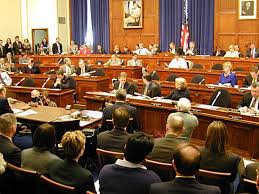Ag organizations are pushing back against a proposed amendment by U.S. Representative Victoria...
OCM, Farm Groups Lobby for Commodity Checkoff Reform

Two bills that would restructure and increase transparency for agriculture checkoff programs have been reintroduced into the U.S. Senate - the Opportunities for Fairness in Farming Act (OFF) and the Voluntary Checkoff Bill. The bills would make checkoff programs more responsive to contributors and voluntary, instead of mandatory.
The Organization for Competitive Markets (OCM) Board member and Executive Director with Animal Wellness Action, Marty Irby, says checkoff dollars are being misused and not representing the interest of producers. “Funds are being illegally used to lobby and there’s been a ton of corruption in many of these checkoffs.”
OCM Executive Director Mike Eby says while USDA requires checkoff fees, the agency has dropped the ball reporting to Congress where the money is being used. “But here you have USDA not even following through with their obligation,” Eby says. “That’s a major concern.”
Joe Arens is with the National Dairy Producers Association and is a Michigan dairy farmer. “We feel the checkoff over the last 38 years has ventured way off course from its original intent which was to promote, to educate and to do research for the farmer’s benefit,” Arens says. “Farmers pay the bill.”
OCM board member and Kansas cattle producer Mike Schultz says checkoff dollars need to benefit paying members and not other organizations. “We’ve not done a very good job with the checkoff being involved where we can get representation of the cattle industry. They represent the beef industry quite well,” stated Schultz.
EDITOR’S TAKE:
Transparency and accountability are good attributes, especially in Washington, D.C. And, there is always room for improvement when it comes to keeping track of where billions of dollars are going. Based on your AIR editor’s experience with checkoff funds, most organizations do a rather remarkable job of looking out for the interest of farmers and ranchers who contribute their hard-earned money to fund such efforts. Plus, there are usually some disgruntled participants who just don’t like the programs and would opt out if possible. Then, there could be a few bad actors that can taint a program because they don’t follow the rules. When that is the case, they should be held accountable and pay the price. All that said, it is our observation that overall commodity checkoff programs are above board and have done a lot of good research, education and promotion on behalf of those they represent. Hopefully, Congress won’t throw the baby out with the bathwater if these bills move forward.







